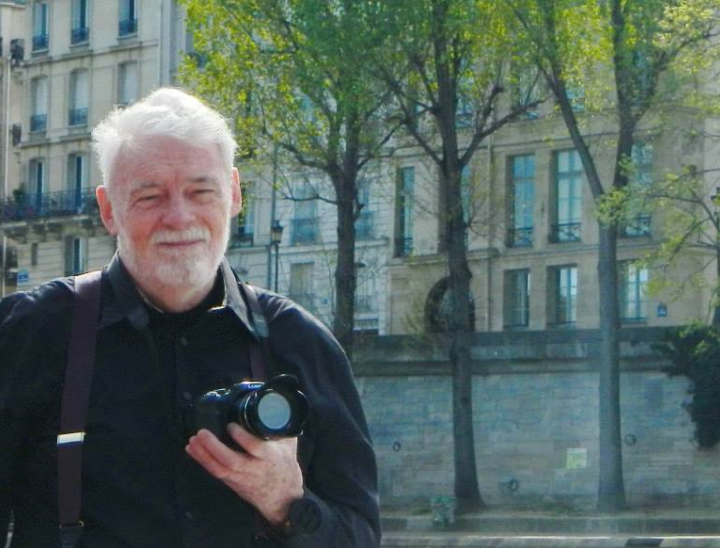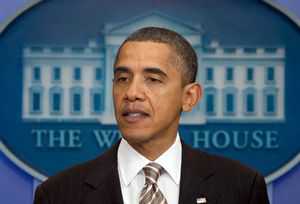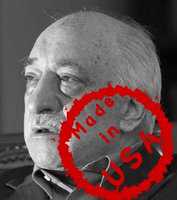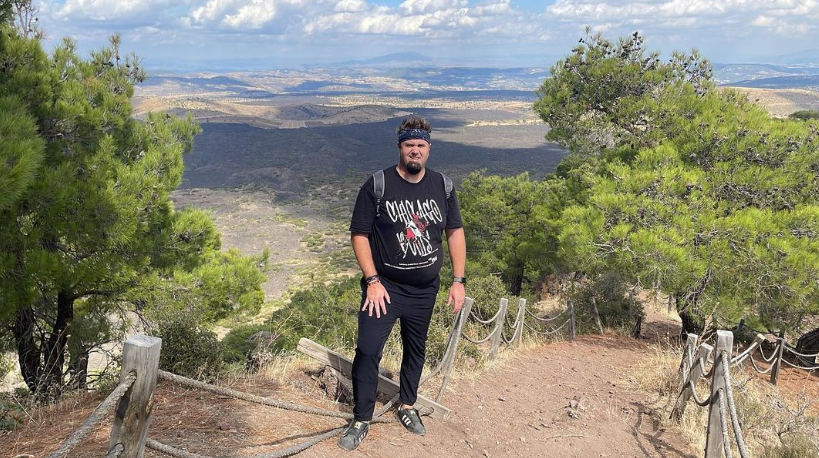SYMPATHY FOR THE TURKISH DEVIL

By Spengler
The American commentariat is shocked, shocked , to discover that Turkey has abandoned the Western alliance for an adventurous bid to become the dominant Muslim power in the Middle East. Tom Friedman of the New York Times suggested on June 15 that “President [Barack] Obama should invite him for a weekend at Camp David to clear the air before US-Turkey relations get where they’re going – over a cliff.” Friedman blames the European Community for rejecting Turkey’s membership bid which, he says, was a “key factor prompting Turkey to move closer to Iran and the Arab world”.
But it is not quite so simple. Friedman and the conventional wisdom are wrong, as usual. Prime Minister Recep Tayyip Erdogan is behaving dreadfully, to the point that a group of retired senior Turkish diplomats denounced him for “neo-Ottomanism”. But Turkey has not moved closer to Iran, except in tactical diplomatic terms. The problem is more subtle: America’s blunders in Iraq gave Iran the chance to become a regional hegemon, and Turkey must vie with Iran for this role as a matter of self-preservation.
It was not the European Community, but rather the George W Bush administration, that pulled the rug out from under Turkey’s secularists and built up Erdogan as a paragon of “moderate Islam”. America’s feckless nation-building policy in Iraq helped Turkey over the edge into Islamism.
In a recent essay [1], I portrayed the Mavi Marmara incident in which nine Turks were killed by Israeli commandos onboard one of the six boats attempting to breach the blockade on the Hamas-run Gaza Strip, as a Turkish farce. It should be obvious to anyone with access to YouTube that Erdogan conducted an exercise in guerilla theater, which qualifies as a comedy of sorts unless you were one of the dead Turks on the boat. What has transpired over the past eight years, though, is a tragedy.
Turkey is held together by weak glue. It never was a nation-state, despite founding father Kemal Ataturk’s ferocious efforts to make it appear to be one. Kurds comprise somewhere between six million and 20 million (the Kurdish nationalists’ claim) of Turkey’s population, and Kurdish separatism poses a continuing threat to Turkey’s national integrity.
For the usual corrupt and foolish reasons, world opinion has focused on the nine dead Turks on the flotilla; of far greater consequence are the several dozen Turkish soldiers who died at the hands of Kurdish guerillas in the past two weeks. More important still are the 2,000 or so Turkic people who died in Kyrgyzstan in the past weeks. Much less distinguishes a failed state like Kyrgyzstan from an apparently successful state like Turkey than Westerners think.
America is about to leave Iraq; Iraq is likely to break up; and if an independent Kurdish state emerges from the breakup it will become a magnet for Kurdish separatists within Turkey. Erdogan has 1,500 Kurds under arrest, including the mayors of some Kurdish towns.
Ataturk’s post-war secularism defined “Turkishness” as a national identity that had never before existed. “Turkishness” is something of a blood pudding. Ottoman identity had nothing to do with nationality in the Western sense. It was religious and ethnic. A fifth of the population of Anatolia before World War I was Christian, mainly Armenian and Greek; virtually all were expelled or murdered. The Turks killed more than a million-and-a-half Armenians, employing Kurdish militia to do most of the actual dirty work (that is why what is now “Turkish Kurdistan” was until 1916 “Western Armenia”. The modern Turkish state was born in a bloodbath, and founded on massive population shifts. The enormous Kurdish minority got the southeast as a consolation prize but still longs for its own language, culture and eventual national state.
Iraqi leader Saddam Hussein was a monster, but for the Turks a useful monster. The 1988 Anfal campaign against the Kurds of northern Iraq killed up to 180,000 of them, and the crackdown on the Kurds after the 1991 First Gulf War killed as many as 100,000. The Turks, by contrast, killed perhaps 20,000 to 40,000 Kurds during the 1980s and 1990s.
Turkey in 2003 refused America permission to open a northern front against Saddam out of fear that the war would destroy Turkey’s ability to control its restive border. The destruction of the Iraqi state, moreover, created a de facto independent Kurdish entity on Turkey’s border, the last thing Ankara wanted. If America had simply installed a new strongman and left, Turkey would have been relieved. But America’s commitment to “nation-building” and “democracy” in Iraq, to Ankara’s way of thinking, meant that Iraq inevitably would break up; the Kurdish entity in northern Iraq would become a breakaway state; and Iran’s power would grow at the expense of Turkey.
Turkey has many reasons to fear Iran, whose possible nuclear ambitions make it a prospective spoiler in the region. But there is another vital issue. Among the fault lines that run through the modern Turkish state is a religious divide. Iran exercises influence through the Alevi minority in Turkey, a heretical Muslim sect closer in some ways to Shi’ite than Sunni Islam. No accurate census of the Alevi exists; they may comprise between a fifth and a quarter of of Turkey’s population. The late Iranian leader, Ayatollah Ruhollah Khomeini, declared the Alevi to be part of Shi’ite Islam in the 1970s, and they have been subjected to occasional violence by Sunni Turks.
The Iraq war undermined the position of the Kemalist military, which had bloodied its hands for decades in counter-insurgency operations against the Kurds. Erdogan’s Islamists argued that the weak glue of secular Turkish identity no longer could hold Turkey together, and proposed instead to win the Kurds over through Islamic solidarity. The Kurds are quite traditional Muslims; unlike the Turkish Sunnis, the provincial Kurds of southeastern Turkey and northern Iraq often practice female circumcision.
After the 2003 invasion of Iraq, the George W Bush administration saw no reason to back the Turkish generals who had let them down in Iraq, and instead threw their backing to the Islamists, on the theory that Erdogan represented a sort of “moderate Islam” that would provide an example to other prospective democratic Muslim regimes. When Erdogan won parliamentary elections in 2003, Bush invited him to the White House before he took office, a gesture that persuaded most Turks that America had jettisoned its erstwhile secular allies, as I wrote in 2007. [2]
The Bush State Department stuck to the story of “moderate Islam” in Turkey even while Erdogan used outlandishly extra-legal methods to dismantle the secular establishment, as I wrote in 2008. [3] In fairness to the State Department, the idea that Turkey was home to a specially moderate strain of Islam was not the invention of American foreign policy analysts but of the Islam specialists of the Jesuit order. Father Christian Troll, a German Islamologist who advises Pope Benedict XVI, and his student Father Felix Koerner popularized the notion of a less virulent strain of Turkish Islam. I reviewed Koerner’s book on Turkish Islam in 2008. [4]
One cannot blame the Bush administration (nor the Jesuit Islamologists) for the person Erdogan has become. By the turn of the millennium, Kemalist secularism was a grotesque relic of 1930s European nationalism. Turkey’s leading novelist, Orhan Pamuk, evoked the spiritual misery of secularist Turkey and the attractions of radical Islam in his Nobel-prize-winning novel Snow, which I reviewed in this space in 2004. [5]
To the extent that there was some hope of keeping Turkey in the Western camp, though, the Bush administration’s nation-building blunders in Iraq and credulous admiration of “moderate Islam” in Ankara destroyed it.
Political Islam as a replacement for Kemalist nationalism is the glue that will hold Turkey together, in Erdogan’s view. It does not seem to be doing a good job. Islamic solidarity was supposed to persuade the Kurds to behave themselves, along with a few nods in the direction of the use of the Kurdish language, which the Kemalists tried to suppress. The killing of 11 Turkish soldiers in raids staged from Iraq and the bombing of a military bus in Ankara show that Kurdish resistance has not diminished. Erdogan, previously so concerned about human rights and the Biblical injunction against killing, raged that the Kurdish rebels will “drown in their own blood”.
Erdogan’s political Islam failed to stabilize Turkey. It will contribute to instability in the region to an extent that is difficult to foresee. Iran now has the more reason to assert its influence in Iraq, perhaps by encouraging the breakup of the country and the emergence of a Kurdish state that might threaten Turkey.
Turkey, in turn, has all the more reason to agitate among the Turkish-speaking, or Azeri, quarter of Iran’s population. Iran will use its influence among Turkish Alevis to challenge the Turkish Sunni establishment; Iran will encourage Turkish separatism. Meanwhile Erdogan’s alliance of opportunity with Hamas undercuts the American-allied Sunni Arab states, Jordan, Egypt and Saudi Arabia, not to mention Mahmoud Abbas’ Palestine Authority.
With the United States in full strategic withdrawal, a Thirty Years War in western and central Asia seems all the more likely.
Notes
1. Fethullah Gulen’s cave of wonders Asia Times Online, June 9, 2010.
2. Why does Turkey hate America? Asia Times Online, October 23, 2007.
3. Turkey in the throes of Islamic revolution? Asia Times Online, July 22, 2008.
4. Tin-opener theology from Turkey Asia Times Online, June 3, 2008.
5. In defense of Turkish cigarettes Asia Times Online, August 24, 2004.
Spengler is channeled by David P Goldman, senior editor at First Things magazine (www.firstthings.com).








